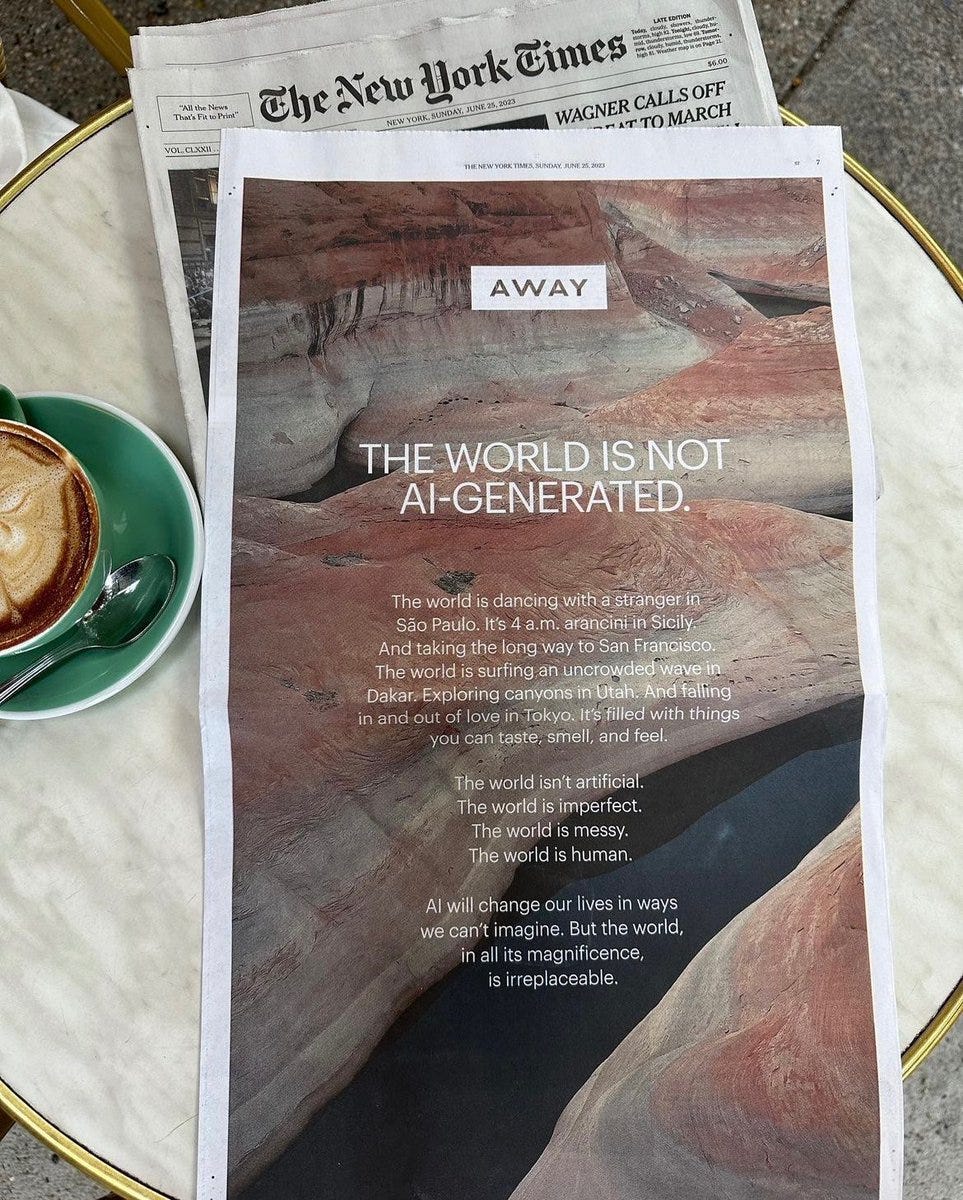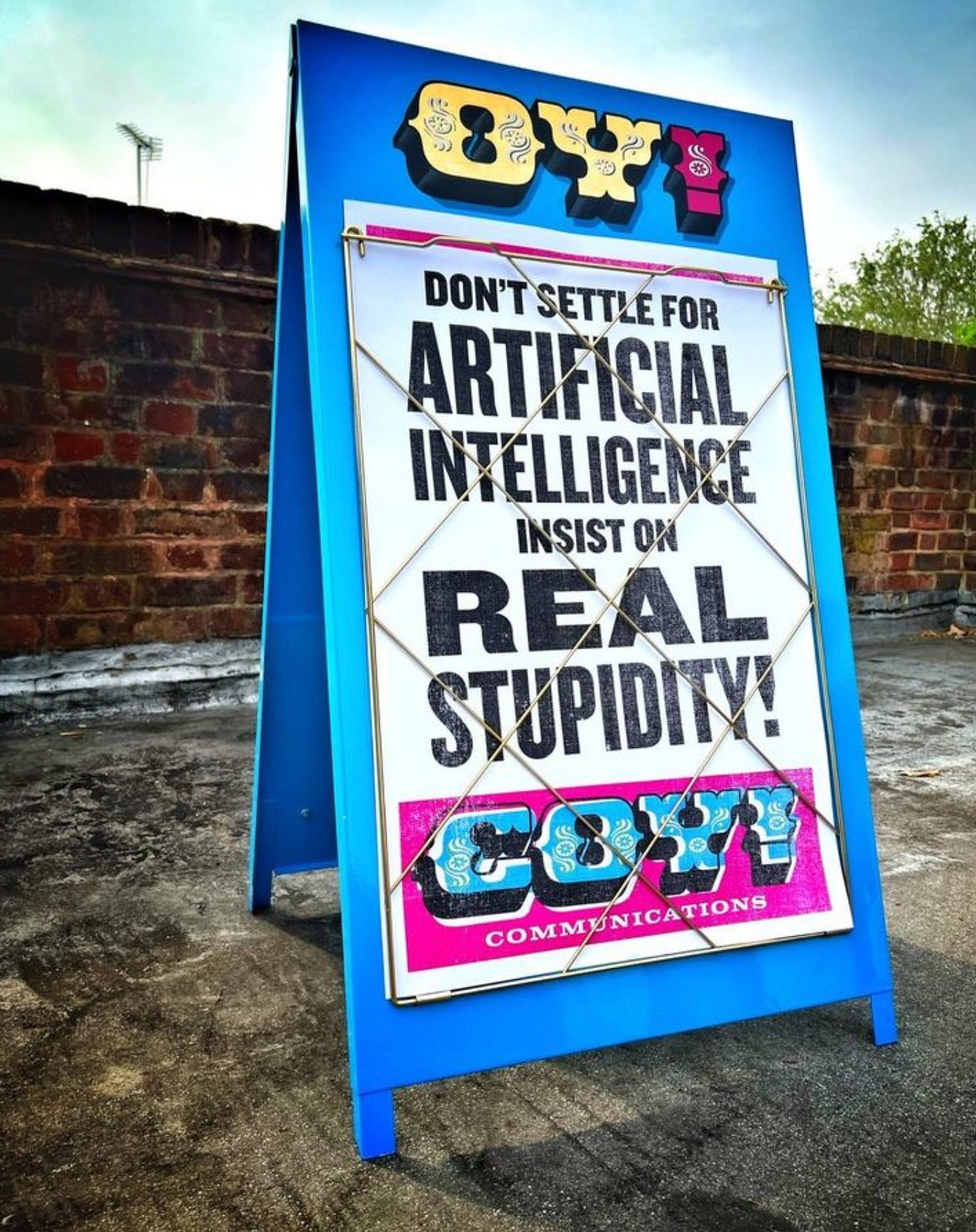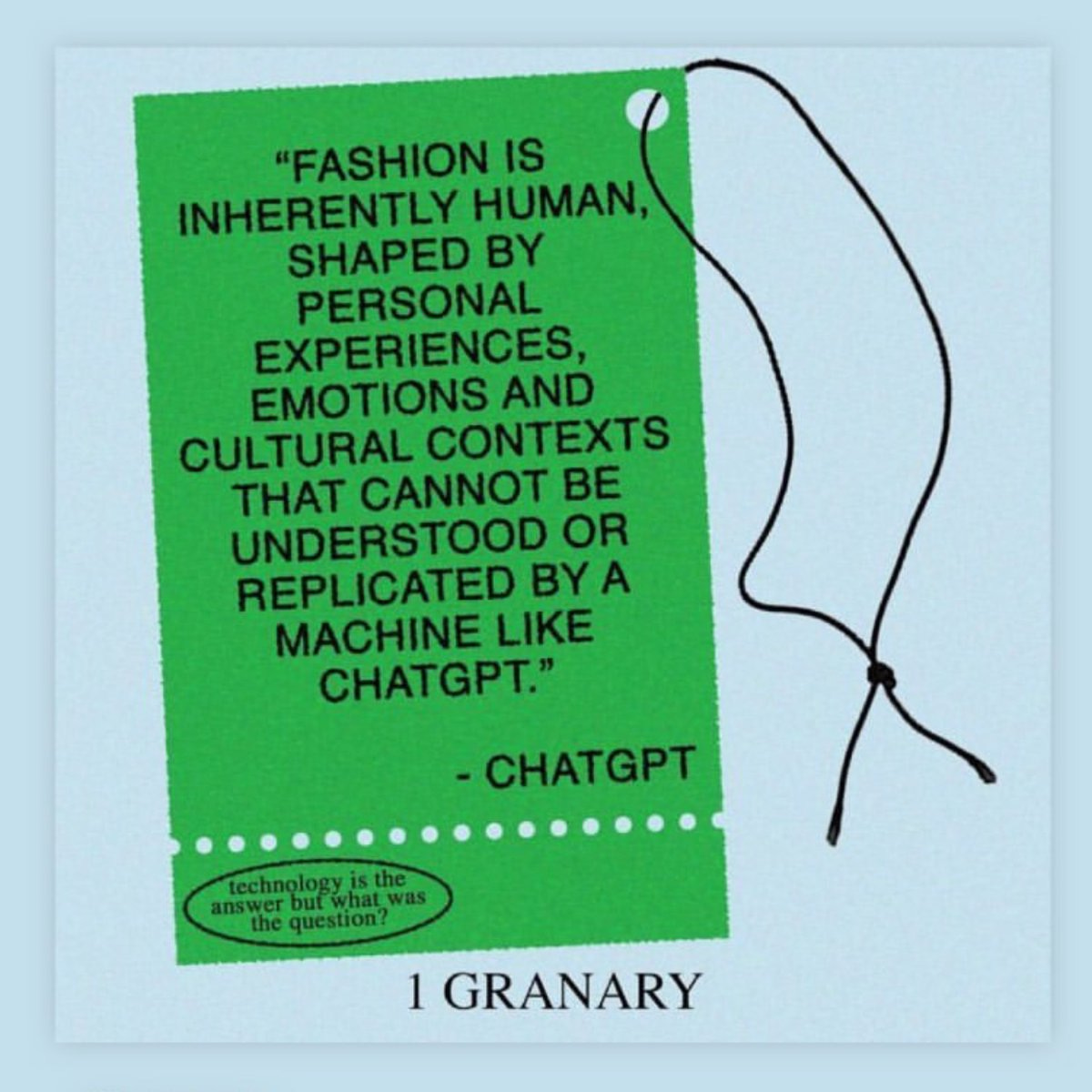idle gaze 052: the AI rebellion: handmade & organically sourced.
Witnessing the rise of the anti-AI, pro-human craft movement.
In the pursuit of consumer relevance and PR buzz, marketers have jumped on the AI bandwagon, with unwavering confidence and admirable commitment, from Coca-Cola’s “Create Real [AI] Magic! campaign, to Heinz asking AI to draw ketchup (because even AI knows “it has to be Heinz!”). Countless brands have found increasingly creative ways to shoehorn Generative AI prompts into conveniently generic brand propositions and force-feed bland brand assets into mid-journey-driven activations.
But away from the swashbuckling bravado of the AI marketing craze, there’s a notable counter-trend emerging. Flicking through newspapers and magazines, glancing up at billboards and flyers and strolling through retail districts, you’ll begin to spot a steadily growing coalition of businesses attempting to evoke a sense of anti-AI sentiment.
This anti-AI movement is made up of an unlikely alliance of brands and industries, from luggage and camera manufacturers to fashion brands and recruitment agencies, united by a shared fear that the natural beauty of the world and authenticity of human workmanship they so cherish, might soon be deemed irrelevant:
In a full page spread in the New York Times, luggage brand Away reminds us that “the world is not AI-generated”, instead, it’s “imperfect”, “messy” and “human”. The world, “in all its magnificence, is irreplaceable”.
Meanwhile, billboard ads by recruitment firm Impact challenge ChatGPT to finish a downtown construction project (spoiler: it can’t), highlighting the irreplaceable skills of the construction industry.
Camera brand Nikon implores us to “not give up on the real world”, and capture its raw, beautiful essence with our camera lenses, rather than lazily use Gen AI image prompts.
E-commerce store Lingua Franca currently stocks a "ChatGPT didn't stitch this" Crewneck (“AI may be coming for us, but our sweaters will always be stitched here in NYC by verified human beings” reads the product description).
The creative agency Coy! argues human stupidity will always lead to better creativity than the disappointing mundanity of artificial intelligence.
All these examples share a common air of moral righteousness, a committed belief in the superior beauty of the natural world and the irreplaceability of human craft.
But there’s also something of the smell of blood in the water. There’s an underlying sense of fear and desperation, an open acknowledgement that their way of life is in danger of being swept away by the tides of relentless technological progress.
But while history has taught us that human progress is often unstoppable and unmerciful, we also know that nostalgia and the allure of tradition can be equally powerful forces. With every new technological leap in productivity, an equally spirited counterculture emerges that rejects modernity in favour of a slower, more human way of life.
We’re now seeing the shape of that inevitable counterculture take hold in the AI space. Craft breweries, natural wine producers and farm-to-fork restaurants emerged as more naturally produced, organic luxuries within increasingly globalised, fast-moving industries. Now it seems a similar craft-human movement is rising in the face of AI-driven cultural production, for those that perceive it as amazingly efficient but also disappointingly soulless.
Just as a return to traditional crafting techniques has once again been embraced by almost every form of product manufacturing, human craft will emerge as the artisanal choice in the era of automated, generative AI creation. As user Ranimolla half-jokingly quipped on Twitter:
Waiting for handmade, locally sourced rebellion to generative AI, like “this tweet was crafted by a human in Brooklyn (that will be $8)”.
For those that prefer 10-dollar cans of micro-brewery beer and hand-knitted Bode sweaters, hiring a human writer to lovingly hand type a letter or a human designer to hand draw a sketch will become the superior choice for true tastemakers. Commanding ChatGPT to instantly churn out a lifeless corpse of copy, or prompt Dall-E to produce an artificial simulacrum of reality will feel akin to ordering 3 dollar rip-offs from Shein. The inherent slowness of human hands and the unpredictable magic of the human mind have the potential to become a tasteful luxury, cherished for its messy, imperfect beauty, away from the cold, applied statistical models of generative AI.










Fuck yeah!
So in other words, we have found a new way to commodify the old ways and idolize 'small business capitalism'? Seems about right.
You win again, capitalist realism.